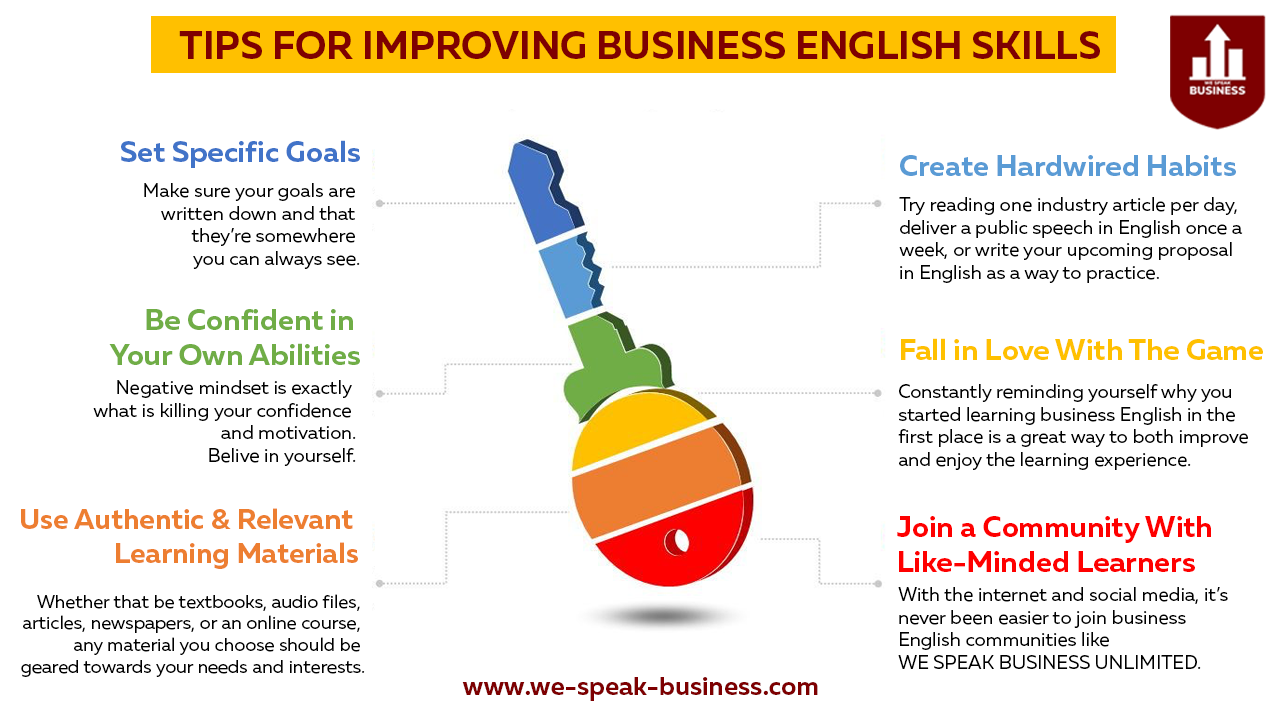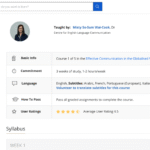Mastering Workplace English Skills: Essential Tips for Career Success
Introduction: Why Workplace English Skills Matter
In today’s globalized world, workplace English skills are no longer a luxury but a necessity. Whether you’re working in a multinational company or engaging with clients from around the world, your ability to communicate effectively in English can significantly impact your career. English has become the lingua franca in many industries, making it essential for professionals to develop strong business communication skills.
This article will explore key workplace English skills, practical tips to improve them, and how mastering English can help you advance in your career.

1. Key Workplace English Skills You Need
1.1 Effective Email Communication
In the workplace, email remains one of the most common forms of communication. Effective email communication involves more than just using proper grammar and spelling; it’s about conveying your message clearly and professionally. You need to strike the right tone, avoid misunderstandings, and provide the necessary details without overwhelming your recipient.
Here are a few tips for writing effective emails:
-
Start with a clear subject line.
-
Use formal greetings and sign-offs unless the culture is more relaxed.
-
Keep emails concise and to the point.
-
Proofread before sending to avoid errors.
Regularly practicing your email writing will help you express yourself with confidence and professionalism.
1.2 Mastering Telephone Etiquette
In many workplaces, telephone communication is essential for connecting with clients, colleagues, and superiors. Telephone etiquette refers to how you speak, listen, and handle calls. Speaking clearly, being polite, and listening attentively are all part of making a positive impression over the phone.
When answering calls:
-
Greet the caller politely.
-
Introduce yourself and your company.
-
Speak clearly and at a moderate pace.
-
Take notes and offer to follow up if necessary.
By improving your telephone etiquette, you enhance both your professional image and the quality of your interactions.

1.3 Presentation and Public Speaking Skills
Whether you’re presenting a new idea to your team or leading a meeting, strong presentation and public speaking skills are vital in any workplace. Being able to speak confidently, engage your audience, and communicate your message clearly will set you apart from your colleagues.
Here are some tips for improving your presentation skills:
-
Plan your presentation in advance.
-
Use visual aids (like slides) to make your points clearer.
-
Practice in front of a mirror or with a friend.
-
Focus on speaking slowly and clearly.
Confidence in public speaking often comes with practice, so take every opportunity to present in meetings or conferences.
1.4 Writing Reports and Proposals
Writing professional reports and proposals is a key skill that many workers use regularly. Whether you’re preparing a progress report or a business proposal, clear and concise writing is essential. Avoid jargon or overly complex sentences, and make sure your writing is well-organized.
To improve your report writing:
-
Use headings and bullet points to break up long sections of text.
-
Keep sentences short and easy to understand.
-
Use data and evidence to back up your arguments.
-
Edit your writing for clarity and flow.
Strong writing skills in the workplace contribute to your credibility and professional reputation.

1.5 Negotiation Skills
In many professional settings, you will be required to negotiate—whether it’s about deadlines, project scope, or salary expectations. Mastering negotiation skills in English is crucial, as it allows you to communicate your position effectively while also understanding the needs and goals of others.
Key strategies for successful negotiations:
-
Prepare thoroughly before the conversation.
-
Focus on win-win solutions.
-
Be polite, even if you disagree.
-
Listen actively and adjust your approach as needed.
Mastering negotiation helps you build stronger professional relationships and achieve desired outcomes.
2. How to Improve Your Workplace English Skills
2.1 Engage in Active Listening
One of the best ways to improve your workplace English is through active listening. This means paying close attention to what is being said, asking clarifying questions, and not interrupting. Active listening helps you understand your colleagues’ perspectives and enables better communication.
To practice active listening:
-
Focus entirely on the speaker.
-
Don’t rush to respond immediately—let them finish speaking.
-
Paraphrase what you’ve heard to confirm understanding.
Active listening not only boosts your comprehension but also shows respect for the speaker.
2.2 Read Workplace Materials in English
A great way to improve both your vocabulary and comprehension is by regularly reading workplace materials in English. This could include internal reports, emails, industry news, and even blogs related to your field. The more you expose yourself to workplace-related English, the more familiar you’ll become with industry-specific jargon and phrases.
Make a habit of reading:
-
Newsletters and reports.
-
Blogs related to your industry.
-
Emails from colleagues and clients.
By reading these materials, you reinforce your understanding of workplace terminology and phrasing.

2.3 Practice Speaking Regularly
Regular speaking practice is key to improving your fluency. Conversing in English every day, even for a few minutes, helps you get more comfortable and confident. Try to find opportunities to practice, whether through casual conversations with colleagues, speaking clubs, or online platforms.
Tips for speaking practice:
-
Record yourself speaking to track progress.
-
Try speaking with native speakers.
-
Join a language exchange group or community.
-
Take advantage of online resources like speaking apps.
Speaking regularly will help you overcome any language barriers and develop a more natural speaking style.
2.4 Take a Workplace English Course
Enrolling in a workplace English course can give you structured learning and the necessary tools to improve your professional English. Many online platforms offer courses specifically designed for improving business communication, from writing emails to giving presentations.
Benefits of a workplace English course:
-
Learn targeted vocabulary for your job.
-
Improve listening and speaking skills.
-
Gain insights into cultural differences in communication.
-
Get feedback from experienced instructors.
Investing in a course will accelerate your learning and give you a solid foundation in workplace English.
3. Frequently Asked Questions (FAQs)
Q1: How can I improve my English fluency for the workplace?
A1: Improving your English fluency for the workplace requires practice and exposure. Engage in regular reading, listening, and speaking exercises. Participate in conversations, attend meetings, and practice business writing skills to boost your confidence.
Q2: How can I sound more professional in emails?
A2: To sound more professional in emails, use formal greetings and sign-offs, maintain a polite tone, and avoid slang or informal language. Be concise and clear, ensuring your message is easy to understand.
Q3: How can I learn business vocabulary quickly?
A3: To learn business vocabulary quickly, immerse yourself in industry-related content such as articles, reports, and podcasts. Practice using new words in sentences and seek opportunities to speak and write using the vocabulary you’re learning.
Q4: What are some common mistakes in workplace English?
A4: Common mistakes include overuse of informal language, incorrect word choice, lack of clarity in emails or reports, and mispronunciation of industry-specific terms. Regular practice, feedback, and exposure will help you avoid these mistakes.
4. Conclusion: Enhance Your Career with Workplace English Skills
Mastering workplace English skills is an ongoing process, but the rewards are invaluable. By improving your communication in emails, meetings, presentations, and negotiations, you position yourself for success in any professional environment. Consistent practice and exposure to English in the workplace will enhance your professional image and open doors for new opportunities.
Invest time in improving your English, and you’ll see a significant difference in your career growth.









